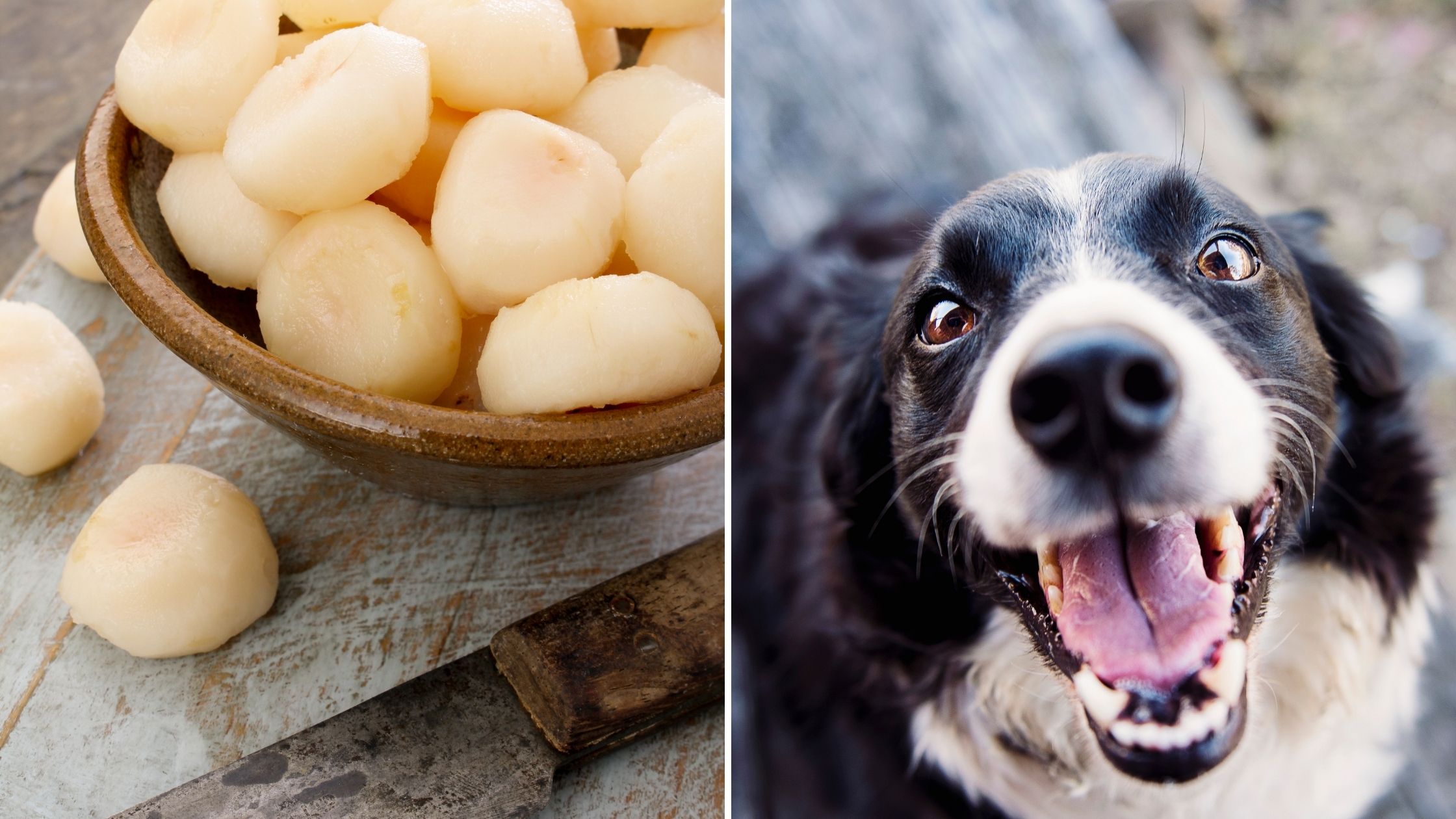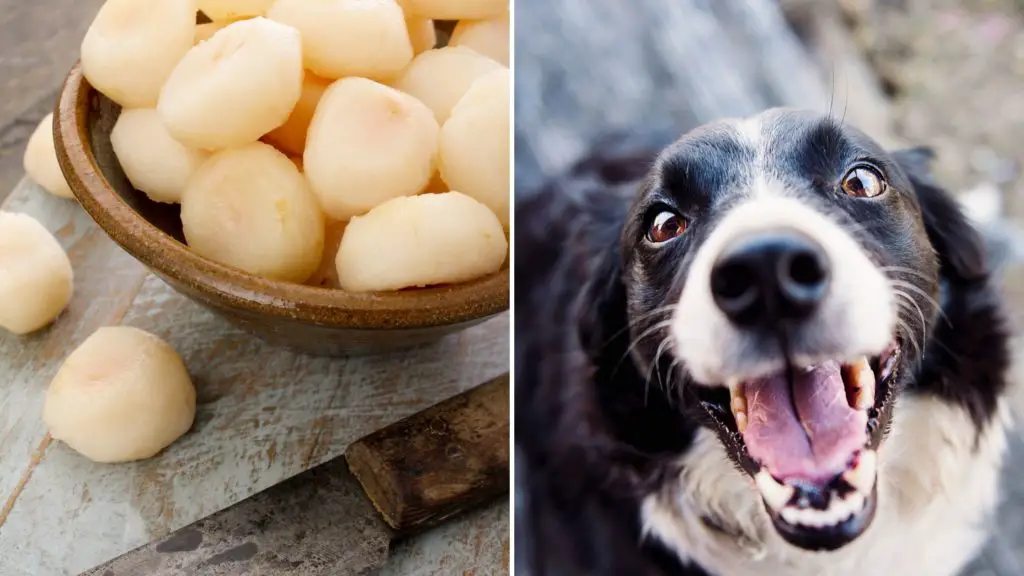Last Updated on 11/17/2021 by Veronica Jones
It’s easy to assume that some foods that are both tasty and healthy for humans are Ok to give to your dog. However, this isn’t always the case. One of the less common examples of this is water chesnuts. Can you feed water chestnuts to your dog? Here are all the facts you need to know.
Can Dogs Eat Water Chestnuts?
Yes, dogs can eat water chestnuts. This “nut” is actually a vegetable, and it is safe and healthy for dogs to eat water chestnuts. Water chestnuts contain a lot of water to keep your dog hydrated. Moreover, it also has loads of nutrients to enhance your dog’s health.
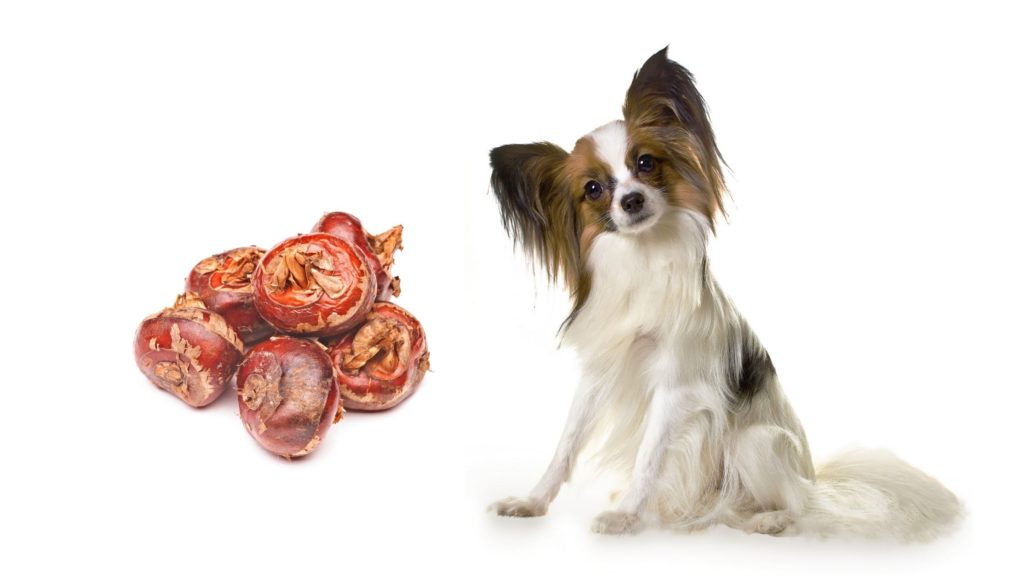
What Are Water Chestnuts?
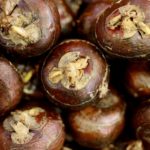
Despite the name, water chestnuts are vegetables that look similar to chestnuts. Unlike chestnuts (or horse chestnuts) that grow in chestnut trees, water chestnuts grow in water. They originally came from China, but they can also be found in Australia, Africa and other parts of Asia.
Water chestnuts have a sweet and nutty flavor. They have a tuber inside that you can eat, and the tuber is the water chestnut located at the stem’s base. Water chestnuts are a common ingredient in Asian cuisine, found in dishes like stir-fries. They are like “sweet chestnuts,” so many people use them to make sweet syrups and drinks.
How Much Water Chestnut Can Dogs Eat?
Dogs can have a few water chestnuts every two weeks or so. While they are very healthy for dogs, they cannot become a part of a dog’s diet every day. Bigger dog breeds can have 2-3 , and medium-sized breeds can have about 1-2 . Small dog breeds should only have 1 water chestnut.
Water chestnuts can cause problems in your dog’s digestive system. They are high in fiber and have a lot of water. These are good for dogs to stay healthy, but too many can cause diarrhea, vomiting, nausea, etc. Therefore, they should only be a fun treat for your dog, not a part of their regular meals.
Keep in mind that even if water chestnuts are healthy, that does not mean your dog should have loads of water chestnut right away. If your dog has never had them before, try to hand them half a piece first. Observe them for about 24 hours. If there is no adverse reaction and your dog experiences no discomfort, your dog can eat water chestnuts.

Can Water Chestnuts Kill Dogs?
Fresh water chestnuts in moderation will likely not cause any harm to a healthy dog. It can cause diarrhea, vomiting, etc., if you are feeding your dog too many, which can lead to dehydration and more serious problems. However, a healthy dog will likely not have any issues.
Canned water chestnuts and chestnuts cooked in toxic ingredients could poison dogs. For instance, canned water chestnut has a lot of sodium, whereas a fresh one does not have any. Too much sodium can cause sodium ion poisoning, which can be fatal if not treated.
It is also important to note that water chestnuts can be a choking hazard. However, it only becomes a choking hazard if your dog eats a water chestnut that is too large for them. Be sure to cut the water chestnut to bite-sized pieces before feeding them to your dog.
Are Water Chestnuts Bad for Dogs?
No, water chestnuts are not bad for dogs, but only when given in moderation and prepared properly. You can let your dogs eat water chestnuts as a fun and healthy treat, and they will likely not cause any harm to your dog. However, they should be prepared properly to prevent other health issues like an upset stomach, diarrhea, etc.
Are Water Chestnuts Good for Dogs?
Yes, water chestnuts are good for dogs. These veggies have a high water content to help keep your pooch hydrated. It is a great treat for a hot day or after your dog exercises. It is also a great snack to give them if you feel like your dog did not drink much water that day.
These vegetables also have a good amount of potassium. Potassium is important to have in a pet’s diet because it keeps your dog’s kidneys healthy. Moreover, potassium can aid indigestion while also helping the heart and muscles function properly.
They are also a fantastic source of protein, which is a crucial nutrient for dogs. The protein in this veggie creates amino acids that help the body stay healthy. Amino acids help repair and maintain the skin tissues, cells, muscle, hair and bone in dogs.
If you want a low-calorie treat for your dog, water chestnuts are what you want. They are low-calorie veggies, which make them great to feed to your dog without worrying about them gaining weight. Half of a cup only has about 45 calories, and your dog will only be eating 1-3 pieces.
Additionally, it also contains fiber. Fiber is important to keep your dog’s digestive tract healthy, which will keep their overall body strong by eliminating waste. Dogs that struggle with constipation may benefit from eating a few as an occasional treat.
How Do I Prepare Water Chestnuts for My Dog?
Wash fresh water chestnuts well to remove any dirt. Peel them to reveal the white interior. Cut the water chestnuts into bite-sized pieces then give a few pieces to your dog. You can hand them the pieces or add the pieces to your dog’s food.
Can Dogs Eat Raw Water Chestnuts?
Yes, dogs can eat raw water chestnuts. In fact, raw water chestnuts are the best kind to give to your dog. When you let your dog eat water chestnut, raw is always the best option because it is free of any potentially toxic ingredients. Plus, feeding it to them raw means that it will have more nutrients.
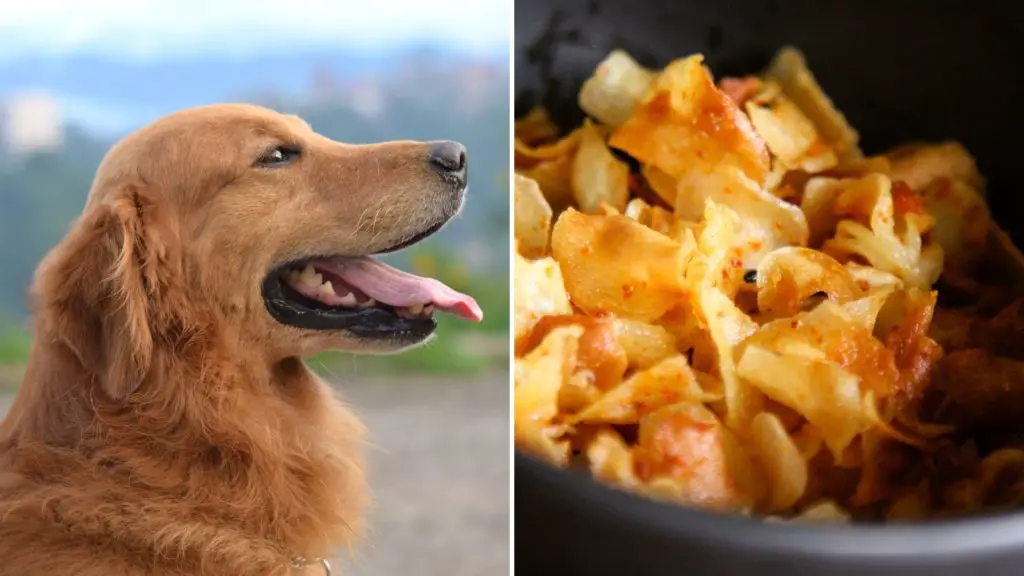
Can Dogs Eat Cooked Water Chestnuts?
Dogs can eat cooked water chestnuts, but only if there are no other ingredients that are toxic to dogs. Many dishes that have water chestnuts in them will have other ingredients in them, like salt, soy sauce, etc., which can be toxic to dogs. Plain, cooked water chestnuts are safe for dogs to eat, but raw is still better.
Will Water Chestnuts Make My Dog Sick?
Water chestnuts can make your dog sick, but only if you feed them to your dog in excess. Avoid feeding your dogs water chestnuts more than once every 2 weeks or so. It is a very healthy treat, but it is still not doing to be part of your dog’s daily diet.
Can Puppies Eat Water Chestnuts?
Yes, puppies can eat water chestnuts. Puppies can enjoy the same health benefits that adults get from eating water chestnuts. However, pet owners should be careful of how much they give their puppies.
Puppies are much smaller than adult dogs, meaning their bodies can only handle so much. The fiber and water content could be too much for a small pup. Therefore, puppies should only have half a piece of a water chestnut every 2 weeks or so. Moreover, water chestnuts cannot replace a puppy’s regular dog food.
Do Dogs Like Water Chestnuts?
It will mostly depend on your dog because each dog will have different preferences. Many dogs do like fresh water chestnuts because they are crunchy and fun to eat. However, the water chestnuts need to be cut into smaller pieces because whole pieces can be a choking hazard.
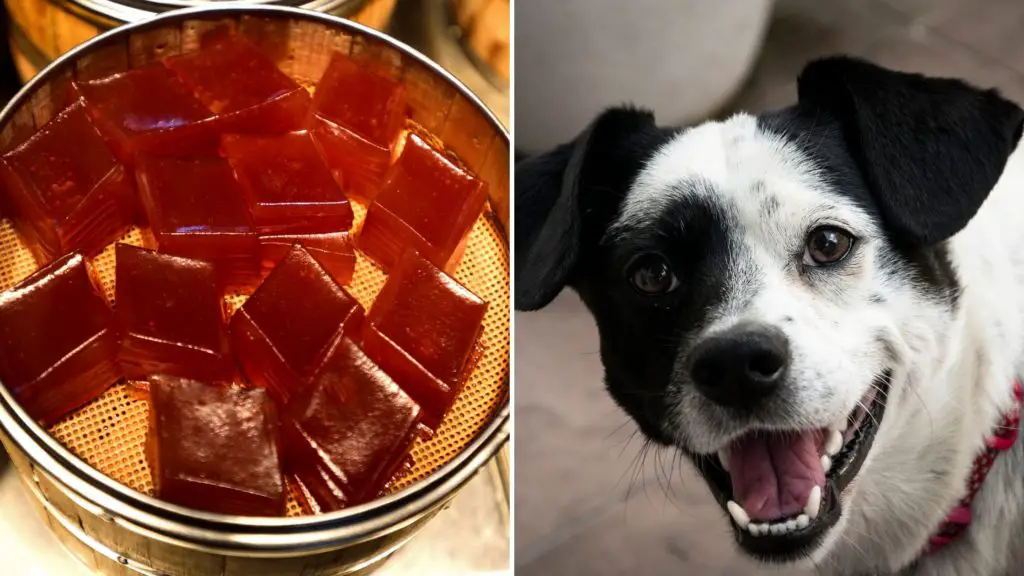
What Can I Feed My Dog Instead of Water Chestnuts?
Since water chestnuts are just vegetables, you can opt for many other veggies to feed your dog. Some veggies, like carrots, can be given to dogs when they are washed and cut to the proper size. Some veggies like broccoli, green beans, beets, etc. can be served cooked. However, these veggies should be cooked plain and without oil by using methods like steaming, boiling, blanching, etc.
Dogs can also have real nuts in small quantities. However, the nuts need to be small enough for them to bite. Moreover, the nuts should be free of other ingredients like salt and oil. Some nuts that you can give your dog are chestnuts, cashews, pistachios, peanuts, pecans, etc.
All in All
Water chestnuts are a fantastic treat for dogs to have on occasion. They have loads of nutrients that can boost your dog’s health. However, they are only meant to be a fun snack for dogs because canines cannot eat this vegetable every day.

